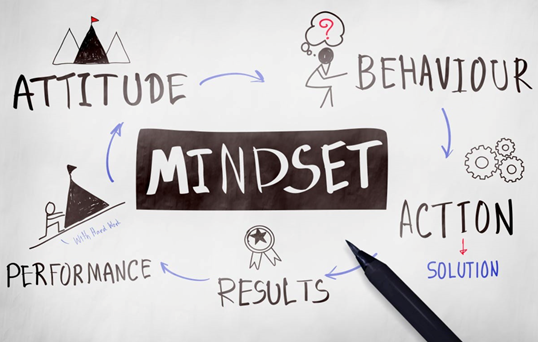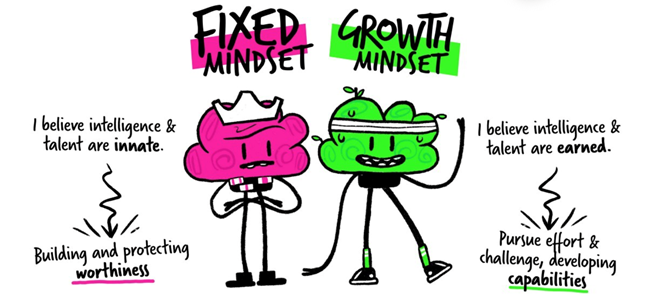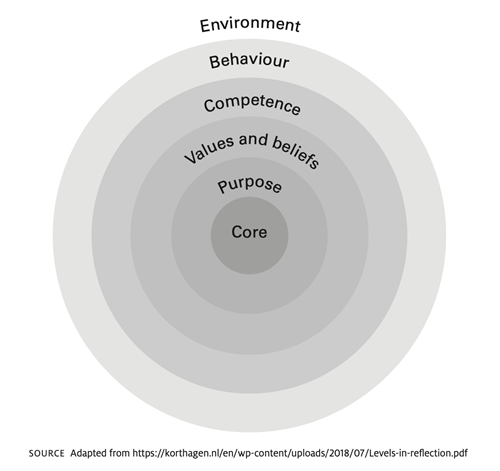When sales teams are faced with abrupt changes in the industry, what is most important - having the right skills, or having the right mindset?
The debate surrounding the importance of skills versus mindset in sales transformation has been ongoing among sales leaders. While having the necessary skills is certainly crucial for success in sales, having the right mindset can also be incredibly beneficial and sometimes more desirable. A salesperson with the right mindset will not only see success in their career but also have a positive impact on those around them.
Recently Dr Phil Squire, CEO of Consalia, and Will Squire, Head of Sales at Consalia, sat down to discuss the importance of the mindsets and how they may affect salespeople in 2023.
The Sales Mindsets were brought to light as a result of Phil’s doctoral research on “How do customers want to be sold to?”. The result being the 4 key values that customers have said they want to see in salespeople when being sold to:
1) Authenticity – This captures many desirable traits customers want to see such as, honesty, credibility, transparency, acting with integrity and being ethical
2) Client-centricity – Being all about the customer. This requires such things as curiosity, passion, interest and going the extra mile
3) Proactive Creativity – Requires a salesperson to be a forward thinker, creative, strategic and innovative
4) Tactful Audacity – This is knowing how far to go without crossing the line, being bold, daring, aware of ones limits and challenging
But how do you achieve the right mindset?
One important aspect to consider is the relationship between our mindsets and our values and belief systems. Understanding how our personal values shape the way we think and act can be key to developing the right mindset for success in the sales industry.

How are the mindsets linked to values and belief systems?
There is no argument that 2022 was a difficult year for many reasons, and it seems this year will follow suit with its own set of challenges. With that being said, it’s more important than ever that salespeople have the right attitude and mindset that will complement their skills. This of course can be done through sales education.
Sometimes when talking about mindsets, people tend to think that it’s an over branching word that can encapsulate many different areas of a person’s thought processes and actions. Or perhaps more basically, whether a person has a positive or negative mindset, good or bad. However, the mindsets cannot be explained so simply. It’s a word that needs deep reflection and exploration.
“For me so much in life is about mindset. The core ingredient to help you navigate whatever’s thrown at you. The more uncertainty there is in the world. The more disruption. The more important this particular topic is becoming” - Dr Phil
To get a betting understanding of the concept of what mindsets are, you can look to two influential figures in the field: Harold Gardner for his work on connecting mindsets to values and belief systems and Carol Dweck for her emphasis on the importance of mindset. Many graduates of Consalia’s Master’s Degree programme have also noted their influence by Dweck’s ideas on growth mindsets and the importance of having the right attitude towards learning and self-development.

Having the right mindset is crucial for effective problem-solving, handling disruption and change in the sales industry. It is linked to a person's values and belief systems and understanding these values and how they shape one's actions is key to understanding one's mindset.
“You could spend a lot of time trying to understand what your values are, and what actually shapes those values, and therefore how you act in any kind of given situation. Which is what we mean when we talk about mindsets. And it's really important.
When you understand your values and belief systems, then you can understand how you might respond in any circumstance.” -Will Squire, Head of Sales
So, the understanding of personal values ultimately helps in making informed decisions during challenging times and being able to adapt quickly to unexpected changes.
According to Dr Phil, who is in full agreement with Will, once a salesperson understands the mindsets that drive the way they perform, think and understand things around them, they will not only improve in their career but possibly also in their personal life. In the end, the mindsets will always link back to values and beliefs.
However, this is also not to be confused with personality, which both Will and Phil believe is something you are born with and often does not change. We can look to Korthagen’s Onion for clarification on an individuals connections between their personality, or their core, purpose and values and beliefs (things that often do not change), and their competence and behaviours. The latter are often what changes during those short company training sessions. However, without proper sales education that embeds the sales mindsets, these learnings do not stick, resulting in salespeople falling back to old habits.

- The core is reflective of a person’s essence or simply put, their core personality which often does not change over time.
- Purpose relates to their reason to live.
- Values and beliefs are influenced by what we are taught when we are young and as a result of our experiences. Because this is something that develops over time and experiences, it can be seen as an addition to one’s core and purpose, so therefor also often does not change.
- Competencies address what salespeople are able to do. This layer of the onion is often what organisations will look to improve to ensure the workforce has the right skill to perform their tasks. This is outside of what can be thought of as one’s personality, and can be changed.
- Behaviour refers to verbal and non-verbal communication.
- The environment is of course a layer in the onion that can constantly change. The environment can relate to supply chain, economy, regulations and other factors that are out of a salesperson’s control.
“Most of the sales training delivered by companies focus on process technique or learned behaviours. At this stage, our research suggests that unless the underpinning values and belief systems are in place, behaviour-based methodologies are compromised.” - Philip Squire, Selling Transformed, 2021
Unfortunately, buyers have a low opinion of salespeople due to years of mistrust and bad sales practices. As salespeople progress in their careers and adapt certain sales practices, those learnings become a natural part of their behaviours. However, if the focus is only on behaviours, then you miss the value in that behaviour. For this reason, it is important to first understand values in order to grasp a deeper understanding of the mindset to achieve sales transformation.
What role does praise and recognition play in mindsets?
During recent years, many workers have been much more vocal about working in negative environments, having a sour connection with their direct managers, or generally not getting the recognition they believe they deserve. It’s important to understand all types of environments, including the work environment, can play a significant role in an individual's mindset, not to mention their mental well-being.
In the context of work environments, praise and being reprimanded can sometimes cause the same negative effect. Take for example your new boss telling you a large reason why you were hired was due to your significant connection with leaders in your industry. This is positive. However, if a year later, you were not able to add to your network or had very few meaningful relationships in your network, what was initially praise might now cause you pressure and to feel negatively towards your ability to make connections. The expectation to have a large network of meaningful relationships was not met. However, this might not have been any fault of your own, and down to external blockers such as a pandemic, unemployment or companies having to cut ties with partners.
Another example. Perhaps you attempted a new sport and hurt yourself badly in the process. This has now left you with a negative impression, which may lead you to believe you are bad at that sport. After this experience, you may not want to try the sport again.
With what has been discussed thus far, it should be clear that it is much more important to focus on the process or journey of learning, rather than the end results. In addition to this self-reflection, it's important for managers to also understand the importance of supporting their team members through this journey and putting less importance on targets.
A manager’s role in the team
“I think in a professional sense, and certainly in a sales sense and on the back of 2022 when things haven’t been easy, it’s having the right mindsets and having managers engage with their teams in the right way to support them during turbulent times.” – Will Squire, Head of Sales
It is very crucial for individuals to understand their own values and beliefs, but also for managers to understand the significant role they play in fostering the right attitudes within their teams, which ultimately connects to their mindsets and overall performance.
In conclusion, a salesperson's mindset is a powerful tool that can shape their career and ultimately determine their success and sales transformation. It is shaped not only through sales education, personal values and beliefs but also by the environment and the way they are managed. It is essential that all salespeople take the time to understand themselves deeply and develop the right mindset. Only with a deep understanding of oneself and a strong mindset, can salespeople make informed decisions during challenging times, adapt quickly to unexpected changes and ultimately lay the foundation for a successful career in sales. It is a crucial step that can make or break a salesperson's performance and transformation of their sales practice, so it is important to make it a priority.
